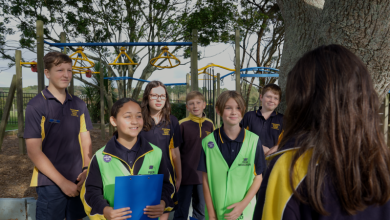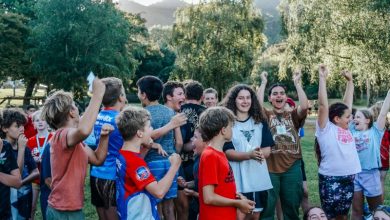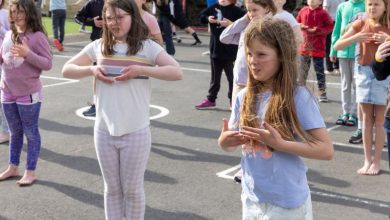Keep well, schools and kura
Schools are renowned for being resourceful, but it is essential that they have the time and budget required to deliver adequate wellbeing support.

In order to do this, continued professional development and community buy-in is essential; especially if schools want to provide equitable access to services, foster pandemic recovery, and cultivate sustainable wellbeing education.
Educator Wellbeing
Some schools are choosing to innovate and produce bespoke resources for teachers themselves. Auckland’s Sancta Maria College chose to address staff wellbeing after teachers were found to be experiencing workload intensity, demands on time and an unbalanced approach.
Our new print magazine is out now! Click here to read online.
They created their own mental health wellbeing booklet to help staff develop new habits to look after themselves, containing weekly activities, tips, and strategies. Tailoring solutions to your school’s particular scope of need can increase ownership, buy in, and achieve the aim of better wellbeing outcomes.
Staff surveys can be a way to start a conversation and begin to address any wellbeing imbalances across teaching, leadership, and support teams. By asking the right questions around mood, productivity, pressure and perspective, staff can be encouraged to share not only what they feel are the problems, but brainstorm solutions.
Organisations like Workplace Wellbeing can provide holistic assessments, strategies, and programmes that combine fun challenges and team activities, leadership training, and help your school develop its own support network for staff.
Student Wellbeing
How does your school assist students to manage their emotions, maintain their focus, build relationships, and improve their coping skills in different situations? Free resources are available from such campaigns such as Pause Breathe Smile, with a raft of tools for students to use and teachers to introduce, such as guided mindfulness practices, classroom activities like creating mind jars, balloon breathing, and gratitude experiments.
Leading the charge in ensuring student wellbeing is Jase Williams. The Principal of Henry Hill School in Napier and his team received the latest Prime Minister’s Excellence in Education Wellbeing Award for their outstanding work in this space. Williams has immersed himself in trauma informed practice learning and has become one of only three people in Aotearoa to be qualified in the Neurosequential Model in Education, and the only Māori certified in this approach in the world.
A Whole-School Approach
Showing true hands-on investment in community and whanau being has seen Principal Williams and his team immerses whānau in learning experiences through a Community Day, shifting away from the classic student/parent conference has led to a 100 percent attendance rate. Each month, the ‘Dad’s and Mum’s Hui’ at school gives staff a chance to share this Kaupapa and starting each day with yoga, student-led and facilitated in Te Reo Māori schoolwide, also sets a calm tone for the school day. It is followed by karakia, and Williams says the school has also added ‘strategic and planned regulatory breaks’.
“This is to reset our brains to intake more cognitive content and to aid in transitioning between activities. We share with our kids what’s happening and going on inside their brains when they’re upset, angry, frustrated, and anxious, and they know ways how to self-regulate.”
Creating a large quiet place in the school where students can go during learning time or breaks ‘to regulate themselves’ has proven beneficial, as has the introduction of their award-winning Sensory Garden: Te Āhuru Mōwai, which includes “a large and winding sensation pathway filled with all kinds of textures and elements designed to stimulate the brain,” says Williams.
Mental health was a key priority in the Government’s Wellbeing Budget this year. After coming under fire for a slow rollout out of support services to schools, it pledged to pump more funding into providing help, more quickly. There are school wellbeing support services being expanded across five more regions thanks to a $90m budget funding boost.
Children in Northland, Counties Manukau, Bay of Plenty, Lakes and the West Coast will soon benefit from this, after 10,500 children were given access to psychologists, counsellors, social and youth workers at school in classroom, group, and individual settings in Canterbury region. Mental health support will continue to be provided through the Ministry of Education in schools and kura across these areas through to the end of 2024.
Also, supported by a $47.6m government investment between 2020 and 2024, Sport New Zealand have developed a raft of whole-school resources as part of the Healthy Active Learning initiative, designed to improve the wellbeing of tamariki through healthy eating, drinking and quality physical activity.









